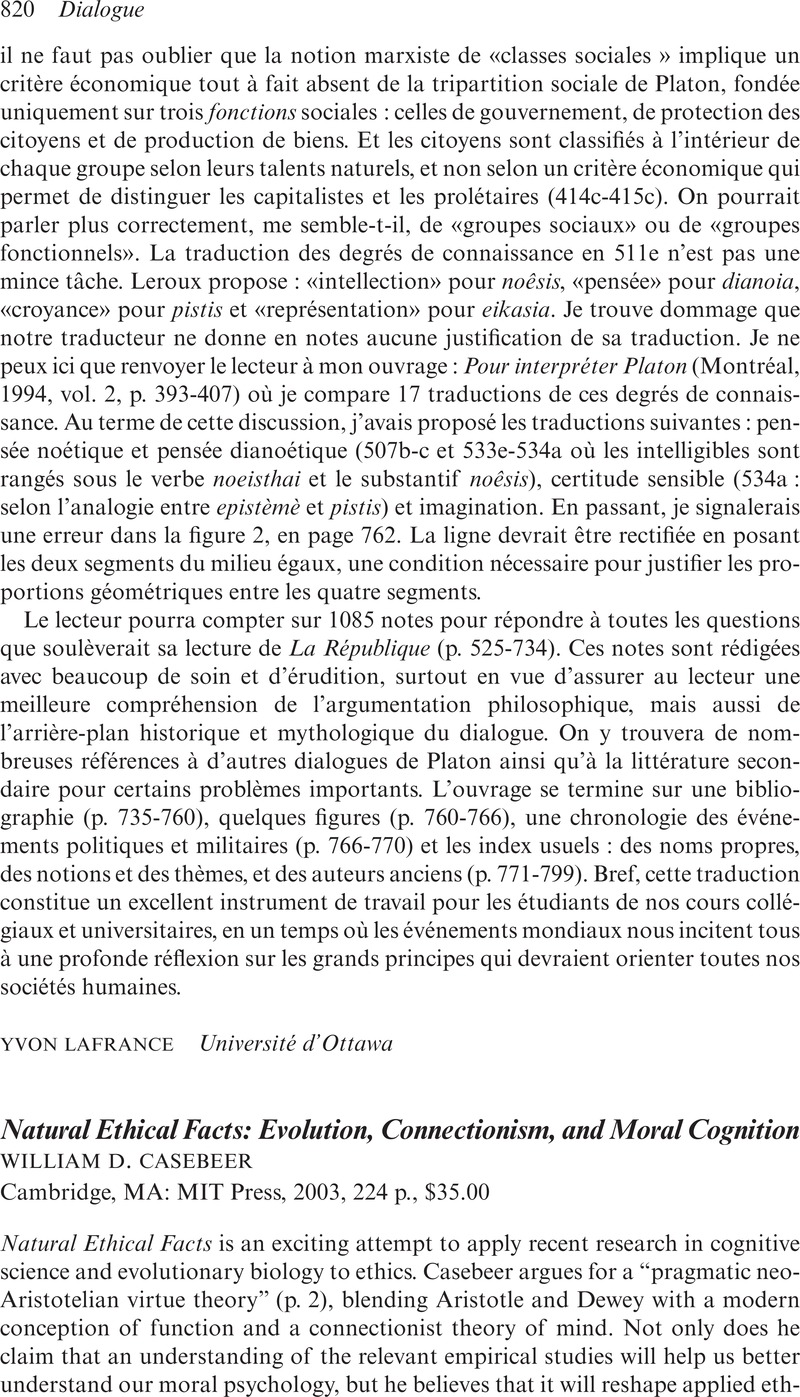No CrossRef data available.
Article contents
Natural Ethical Facts: Evolution, Connectionism, and Moral CognitionWilliam D. Casebeer Cambridge, MA: MIT Press, 2003, 224 p., $35.00
Published online by Cambridge University Press: 27 April 2009
Abstract

- Type
- Book Reviews/Comptes rendus
- Information
- Dialogue: Canadian Philosophical Review / Revue canadienne de philosophie , Volume 44 , Issue 4 , Fall 2005 , pp. 820 - 824
- Copyright
- Copyright © Canadian Philosophical Association 2005
References
Notes
1 See Churchland, Paul M.'s “Toward a Cognitive Neurobiology of the Moral Virtues” (Topoi, 17 [1998]: 83–96)Google Scholar and “Rules, Know-How, and the Future of Moral Cognition” (Canadian Journal of Philosophy, Suppl. Vol. 26 [2000]: 290–306)Google Scholar. Also see Flanagan, Owen's “The Moral Network,” in The Churchlands and Their Critics, edited by McCauley, Robert (Malden, MA: Blackwell, 1996).Google Scholar
2 Clark, Andy, “Word and Action: Reconciling Rules and Know-How in Moral Cognition” (Canadian Journal of Philosophy, Suppl. Vol. 26 [2000]: 267–89).CrossRefGoogle Scholar
3 Chomsky's classic statement of the poverty-of-stimulus type of argument can be found in his “A Review of B. F. Skinner's Verbal Behavior (Language, 35, 1 [1959]: 26–58).Google Scholar
4 For a very readable introduction to the literature, see Damon, William, The Moral Child: Nurturing Children's Natural Moral Growth (New York: The Free Press, 1988).Google Scholar
5 I would like to thank William D. Casebeer and Christine Tappolet for their thoughtful comments on a draft of this review.


